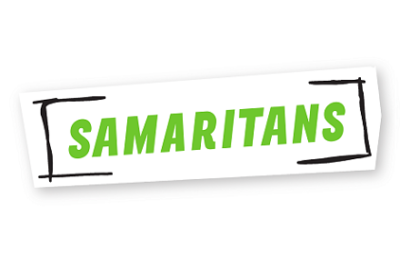- Home
- Student Welfare
- Mental Health and Wellbeing
Mental Health and Wellbeing
KES is committed to supporting the emotional well-being and physical and mental health of all members of the school. We firmly believe that emotionally healthy and resilient students will become strong independent learners and responsible adults within the community.
We are always available to support students, parents and staff when they are experiencing difficulties. We can provide direct day-to-day help within school via our Pastoral team or refer to external agencies for more in-depth support. There are a range of support services and websites that we can contact or that students and parents can access directly.
Mental health conditions affect about 1 in 10 children and young people. Some of the most common diagnosed mental health conditions include:
Anxiety: strong feelings of unease, worry and fear. Occasional anxiety can be a normal experience and so it can be difficult to identify if this is a mental health concern. However, if a young person’s feelings of anxiety are very strong or last for a long time they can become overwhelming. A young person might experience constant worrying, or physical symptoms such as stomach pains, lack of sleep and panic attacks.
Depression: a feeling of low mood that lasts for a long time and affects everyday life. It can make a young person feel hopeless, guilty, worthless, unmotivated and exhausted. It can affect their self-esteem, sleep, appetite or physical health. Depression can be experienced at different levels, e.g. mild or severe and can often be linked with anxiety.
Obsessive Compulsive Disorder (OCD): a type of anxiety disorder, often misused when people refer to being ‘a bit OCD’ if they like things neat and tidy. In reality, obsessions are intrusive thoughts, ideas or urges that repeatedly appear a person’s mind (e.g. thinking that they have been contaminated by dirt and germs), whilst compulsions are repetitive activities that they feel they have to do, e.g. repeatedly washing their hands or repeating a phrase.
Self-Harm: a way of expressing very deep distress where a person undertakes actions to cause themselves physical pain. This can be as a means of expressing feelings that cannot be put into words. After self-harming, a person may feel a short-term sense of release but the cause of the distress is unlikely to have gone away.
Phobias: an extreme/exaggerated form of fear or anxiety triggered by a particular situation (e.g. going outside) even when there is no realistic danger. Phobias can have a significant impact on day-to-day life. Symptoms are similar to anxiety and can include panic attacks.
Bipolar Disorder: previously known as manic depression, bipolar disorder affects a person’s mood and can involve extreme mood swings. These variations in mood can be overwhelming and lead a person to feeling depressed in between.
Schizophrenia: the symptoms of schizophrenia can include hallucinations or delusions, disorganised thinking, feeling disconnected/withdrawn and wanting to avoid people. Schizophrenia is a controversial diagnosis because not all people who experience these things agree that they have a mental health condition, and that schizophrenia is in fact a collection of unrelated symptoms.
Personality Disorder: a condition where a person’s attitudes, beliefs and behaviours cause them longstanding problems. The two main types are Borderline personality disorder (BPD) and Antisocial personality disorder (ASPD). A BPD diagnosis can occur if a person experiences intense, changeable moods, an overwhelming fear of abandonment, an unstable sense of identity, and risky behaviours. An ASPD diagnosis can occur if a person experiences things like disregard for the feelings/needs of others, manipulating others for their own gain, difficulty maintaining relationships, and feeling little guilt for their actions.
Eating Disorder: these can occur when a person eats too much or too little. A person with an eating disorder might overeat or binge, or they might deny themselves food. The disorder is likely to have developed from a deeper issue and the person is likely to be overly concerned with food and how much they weigh. Anorexia, bulimia, bingeing and compulsive eating are common eating disorders.
HOW to access support:
Talking: The best way to access help and support is to talk to someone. Students can speak to any member of staff and be directed to the correct place.
Contact Us: Parents with concerns can contact their Child's Tutor, Head of Year or a member of the Pastoral team.
WHO to get support from:
Tutor: Students are placed into tutor groups. The tutor will hold morning registration and Reading sessions with the students each day, delivering the tutor time programme, getting to know the students and offering support.
Head of Year: There is a Head of Year assigned to each year group. This is a teaching member of staff that monitors and oversees the behaviour, well-being and progress of the students in that cohort. Heads of Year move through the school with their year group which helps to develop lasting relationships.
Pastoral Team: The pastoral system is designed to ensure all students are supported throughout their years at KES. The team consists of a Pastoral Support Assistant, Pastoral Officers, Safeguarding Manager and Trainee Counsellors. These staff all work alongside our Deputy Head for Pastoral, and our Assistant Head for Pastoral and Heads of Year, to ensure consistent support throughout the school. These staff are based in E4 and are often the first point of contact for a student if they have a concern.
Designated Safeguarding Leads: KES has a comprehensive designated Safeguarding Team that consists of the Headteacher, Mr Osborn, a Safeguarding Lead, Mr Feeley (Deputy Head), and two Safeguarding Deputies, Mr Read (Acting Assistant Head) and Mrs Appleyard (Safeguarding Manager).
School Trainee Counsellors: The school works with independent trainee counsellors that can meet with students on a regular basis. Referrals for a counsellor must be made via the Pastoral team and can occur as a result of a request from a parent, student or member of staff.
WHICH students offer support too:
Prefects: A select number of Year 11 students are appointed as Prefects (identified by their tie). These students represent the school and fulfil a range of different roles of responsibility. Younger students can ask them for support if they need help.
Anti-Bullying Council: A sub-group of Prefects are assigned to support students via the Anti-Bullying Council. The group meet daily at breaktimes in E3.
Student Leadership Team: The Sixth Form Head Students and their deputies are based in the Sixth Form and are always willing to help and support younger students, as are the six Year 11 Senior House Captains. These students can be idenfified by their distinct yellow lanyards.
WHAT resources are available:
PSHE, Tutor Time and Assemblies: Mental health and well-being are topics regular covered during PSHE lessons, morning tutor time activities and through whole-school assemblies. These lessons/activities will include signposts to resources for help.
Links and resources: There are lots of different websites and resources offering support which can be accessed directly from this section of the website.
Reading List: Leaflets and information about common Mental Health conditions are available from the Pastoral Team. A booklet offering advice, guidance and resources for parents and carers of young people that have self-harmed, is available upon request from the Safeguarding team.
KES can refer to external agencies to provide students, parents or families with more specialised support if necessary. Many of these services also facilitate self or parental referrals:












